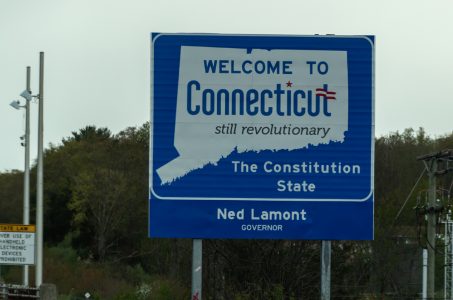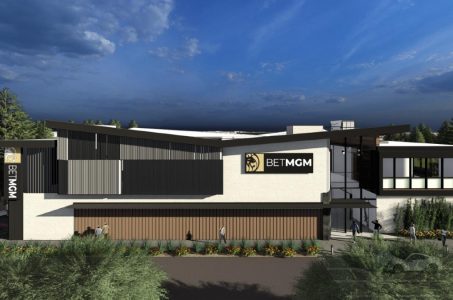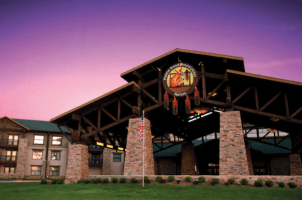Florida Sports Betting Update: Federal Judge Frustrated by US Government Response
Posted on: November 7, 2021, 11:18h.
Last updated on: November 8, 2021, 07:28h.
The next few days will be pivotal ones for those interested in the fate of sports betting in Florida.

On Friday, a federal judge in the District of Columbia gave attorneys representing the Department of the Interior and Interior Secretary Deb Haaland until Tuesday to submit a brief. The focus of that report is on why the the amended gaming compact between the Seminole Tribe of Florida and state leaders – which allows sports betting off tribal lands, including through online accounts – adheres to the Indian Gaming Regulatory Act (IGRA).
Throughout the nearly two-hour hearing, US District Judge Dabney Friedrich openly expressed her frustrations at the responses – or the lack thereof – she received from Rebecca Ross, a US Department of Justice attorney representing the government.
Those frustrations started with the government’s failure to adhere to the briefing schedule the judge laid out nearly two months ago. Toward the end of the hearing, the judge asked repeatedly if the government interpreted online betting as taking place on tribal land. When Ross started talking about the “unique nature,” Friedrich cut her off and said it’s a simple yes or no question that she couldn’t answer.
It’s hard not to sit here and think that the government’s sole litigation strategy here is simply to delay,” Friedrich said.
Friedrich said that she will try to issue her ruling by Nov. 15. That’s when the owners of the Magic City Casino and Bonita Springs Poker Room said they were told Seminole Gaming would launch online sports betting. However, she would not guarantee that.
Seminoles Kicked Off Mobile Sports Betting Last Week
Online sports betting started last week in Florida, as Hard Rock Sportsbook initiated an “Early Access Launch,” according to its website.
The gaming compact that Florida Gov. Ron DeSantis and Seminole Chairman Marcellus Osceola Jr. signed earlier in the year legalized sports betting in the state and gave exclusive control to the tribe. In return, the state is in line to receive $2.5 billion from the tribe over the next five years, and $6 billion through 2030.
The compact lets the tribe operate mobile sports betting statewide and partner with pari-mutuel operators across the state to install kiosks in their venues. That’s in addition to retail sportsbooks at the Seminole and Hard Rock casinos,
Magic City and Bonita Springs, both owned by Southwest Florida Enterprises, filed lawsuits in federal courts against state leaders and federal officials. A Florida federal judge dismissed the case against Florida leaders last month.
The plaintiffs claim IGRA does not allow online betting and restricts gaming activity to tribal lands. Since sports betting is otherwise illegal in Florida, they face losing business due to the Seminole Tribe’s online application. They seek either a summary judgement on their behalf, or an injunction blocking parts of the sports betting language from taking effect until the court decides.
A lawyer for the plaintiffs said within days of Seminole Gaming’s early launch, the pari-mutuel operators’ handle was down 35 percent.
Outside of the legal system, a petition drive led by FanDuel and DraftKings is underway. That would allow Florida voters to legalize statewide sports betting for commercial operators.
Long Road Ahead Likely in the Courts
Friday’s hearing showed the complexity of the case. In addition to the pari-mutuel operators, Friedrich also heard from lawyers representing parties that want the entire compact blocked – not just the sports betting portion allowed off tribal lands. So, they seek a different end result than the pari-mutuel operators.
On the other side of the courtroom, the federal government is the defendant. But the Seminole Tribe is also seeking to intervene in the case. Tribal leaders have argued that the federal government’s interests are not the same as theirs, and they will be affected by the eventual decision in the case.
Remember, back in August, the Interior Department notified Seminole and Florida leaders that its review of the compact could not be completed within the 45-day window. Because of that, federal law considers the compact approved as it adheres to IGRA.
Federal officials did express some concerns about the pari-mutuel partnership aspect of the agreement, as well as another provision that gives the state jurisdiction over patron disputes. However, when it came to online wagering, officials also said they would not read restrictions into the 33-year-old IGRA that do not exist.
So, likely by next Monday, we’ll find out whether Friedrich agrees that having servers on tribal lands qualifies as the bet being placed on tribal land. Odds are, her decision in the case will not be the last one.
Related News Articles
Connecticut Sports Betting, iGaming Regulations Gain Legislative Approval
BetMGM Sportsbook at Arizona Cardinals NFL Stadium Begins Construction
Most Popular
VEGAS MYTHS RE-BUSTED: The Strip is the Brightest Place on Earth
UPDATE: Former Resorts World & MGM Grand Prez Loses Gaming License
Zillow: Town Outside Las Vegas Named the Most Popular Retirement City in 2024
Jackpot News Roundup: Two Major Holiday Wins at California’s Sky River Casino
Most Commented
-
UPDATE: Whiskey Pete’s Casino Near Las Vegas Closes
— December 20, 2024 — 33 Comments -
Caesars Virginia in Danville Now Accepting Hotel Room Reservations
— November 27, 2024 — 9 Comments -
UPDATE: Former Resorts World & MGM Grand Prez Loses Gaming License
— December 19, 2024 — 8 Comments -
FTC: Casino Resort Fees Must Be Included in Upfront Hotel Rates
— December 17, 2024 — 7 Comments
















Last Comments ( 2 )
Is anyone going to address the wrongful debit card charges the drained hundreds accounts in various states by HardRock Sportsbook? Cause m not seeing anything, I live in Michigan and they took everything. I didn’t even know they existed until they drained my bank account and I’m not the only one they did this to.
In fairness to the feds, the threshold issue at the hearing was whether the plaintiffs had standing to sue. If not, issues on the merits, like whether the bets are legally occurring on Indian Lands, are beside the point. I suspect the judge was aggravated with DOJs level of attentiveness, but requiring the defendants to brief the merits will be likely be judged an error if the case goes up the ladder. There can be no argument now that DOI/DOJ adequately represent the tribal interests involved.